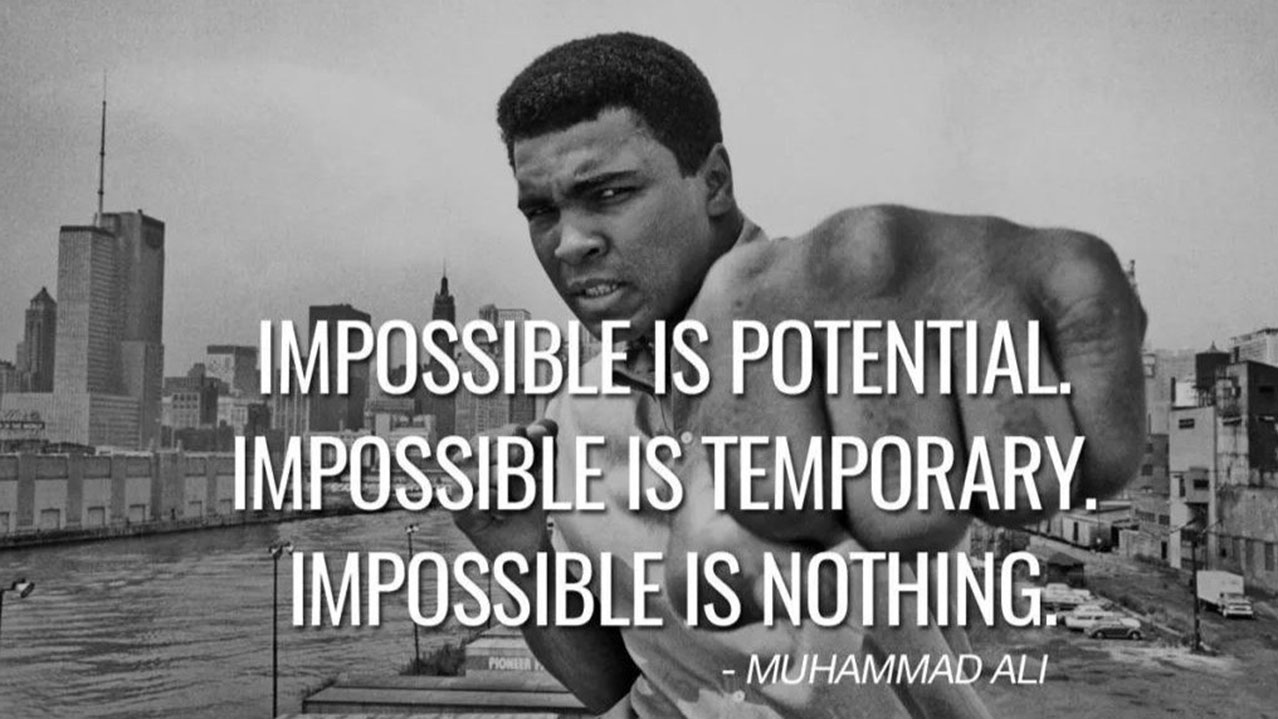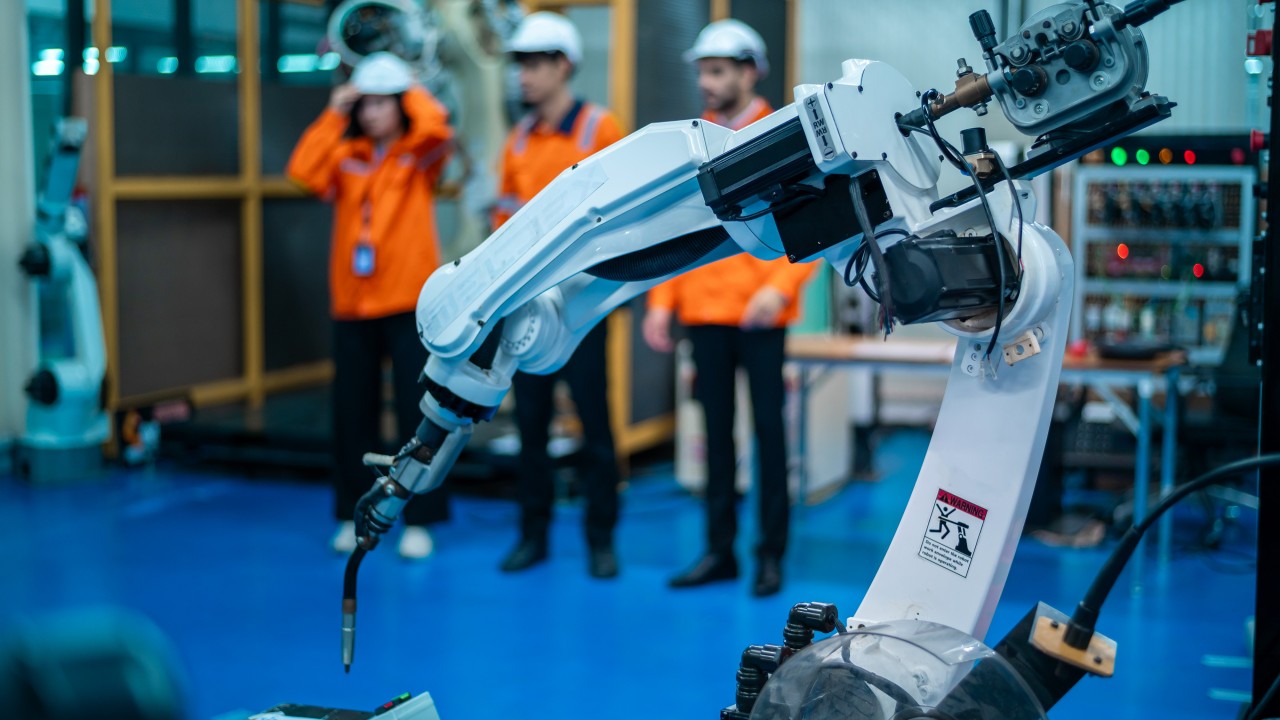
Impossible is Nothing: Lessons Building Great Games
Muhammad Ali, one of the most celebrated athletes in history, wasn’t just a boxing legend—he was a master of mindset. Among his many powerful quotes, one stands out as a rallying cry for innovators, entrepreneurs, and creators:
“Impossible is just a big word thrown around by small men who find it easier to live in the world they’ve been given than to explore the power they have to change it. Impossible is not a fact. It’s an opinion. Impossible is not a declaration. It’s a dare. Impossible is potential. Impossible is temporary. Impossible is nothing.”
Ali’s words go beyond sports—they hold the key to success for anyone chasing big dreams, especially in the tech world. Whether you’re building the next blockbuster mobile game, creating a life-changing app, or revolutionizing an industry, Ali’s philosophy can inspire you to turn the “impossible” into reality.

Impossible Is Not a Fact—It’s an Opinion
What one person sees as “impossible” is often a limitation of their imagination. History is full of examples where innovators rejected the notion of impossibility:
- Angry Birds: Rovio, the company behind Angry Birds, developed 51 failed games before their 52nd attempt became a worldwide hit, grossing billions. What seemed “impossible” was just persistence in disguise.
- Airbnb: The idea of strangers renting out their homes seemed laughable in its early days. Yet today, it’s a $100 billion company that has redefined travel and accommodation.
- The Wright Brothers (1903): People believed human flight was impossible. Wilbur and Orville Wright defied skeptics and built the first successful airplane, revolutionizing transportation and connecting the world.
- Thomas Edison: Edison failed over 1,000 times while trying to invent the light bulb. When asked about his failures, he famously said, “I have not failed. I’ve just found 1,000 ways that won’t work.” His persistence illuminated the modern world.
- Alexander Graham Bell (1876): The idea of transmitting voices over wires was considered absurd. Bell’s invention of the telephone not only worked but laid the foundation for global communication.
- Henry Ford (1908): Mass production of affordable cars seemed impossible. Ford’s introduction of the assembly line made the automobile accessible to millions, changing the face of transportation forever.
- J.K. Rowling (1997): Rejected by 12 publishers, Rowling was told her book about a boy wizard would never sell. Today, Harry Potter is one of the most successful book and film franchises in history.
- Walt Disney: Early on, Disney was fired from a job because he “lacked imagination.” He went on to build one of the largest entertainment empires in the world, proving imagination knows no limits.
- The Internet (1960s–1990s): The concept of a global network connecting computers seemed absurd in the mid-20th century. Visionaries like Vint Cerf and Tim Berners-Lee made it a reality, revolutionizing how we live and work today.
When you’re working on a tech project—be it a game, app, or startup—the word “impossible” is often a reflection of fear, doubt, or inexperience, not reality. If you view it as a challenge to overcome, the impossible starts to feel achievable.

Impossible Is a Dare
Ali didn’t see the impossible as a barrier—he saw it as a dare to push boundaries. This mindset is the foundation of disruption in the tech world.
- Flappy Bird: Created by a solo developer, Flappy Bird seemed like an unlikely success story. Its simplicity stood out in a market dominated by complex games, and it became a viral phenomenon.
- Uber: The concept of getting into a stranger’s car via an app felt impossible to many. Yet, Uber dared to change transportation forever, paving the way for an entire gig economy.
When you view the impossible as a dare, you open the door to bold ideas. Whether you’re crafting a new gameplay mechanic, designing an innovative UI, or introducing a disruptive business model, it’s the willingness to take risks that separates success from mediocrity.
Impossible Is Potential
Ali’s words remind us that every “impossible” holds untapped potential. It’s where innovation happens.
- Minecraft: Not backed by a big studio, Minecraft was created by one person, Markus Persson. He saw potential in a simple block-building concept, and it went on to become the best-selling game of all time.
- Instagram: Originally a failed check-in app called Burbn, the team pivoted, focusing on photo sharing instead. That small shift unlocked Instagram’s massive potential, leading to its acquisition by Facebook for $1 billion.
Recommended by LinkedIn
For entrepreneurs and creators, every roadblock is an opportunity to ask: “What’s the hidden potential here?” Maybe it’s in a niche market, a unique feature, or a fresh perspective on a common problem.

Impossible Is Temporary
What feels impossible today may simply require time, effort, or a shift in perspective.
- Candy Crush Saga: When King Digital launched its game, there was skepticism about its “freemium” model. Today, it’s one of the most profitable games in history, proving that innovation can turn initial doubt into long-term success.
- SpaceX: Elon Musk’s dream of reusable rockets was considered unrealistic. Today, SpaceX regularly sends rockets to space and back, revolutionizing the aerospace industry.
Temporary setbacks are part of every creator’s journey. Whether it’s a buggy prototype, low user adoption, or funding struggles, remember: these challenges are temporary. With persistence, they will pass.

How to Apply Ali’s Wisdom to Building Tech Businesses
- Reframe Failure: If your app flops or your game doesn’t get traction, view it as data. What can you learn to make the next iteration better?
- Take the Dare: Treat “impossible” as a creative challenge. Push boundaries others are too afraid to approach.
- Find Hidden Potential: What seems like a dead end might hold a breakthrough. Look for untapped opportunities within your failures.
- Stay Persistent: Success often comes after countless “no’s.” Each setback is one step closer to your goal.
The Final Lesson: Keep Moving Forward
You don’t know which app, game, or startup will be your breakthrough. The next prototype could be your Angry Birds, or the next pivot could be your Slack. But none of it will happen if you stop trying.
Ali’s words remind us that failure is not the opposite of success—it’s the path to it. Whether you’re building the next viral game or creating a groundbreaking app, the only way to achieve the “impossible” is to keep pushing forward.
In Ali’s world, “impossible” isn’t a barrier; it’s an invitation. So dare to dream big, build boldly, and create the future you imagine.
Impossible is nothing.








